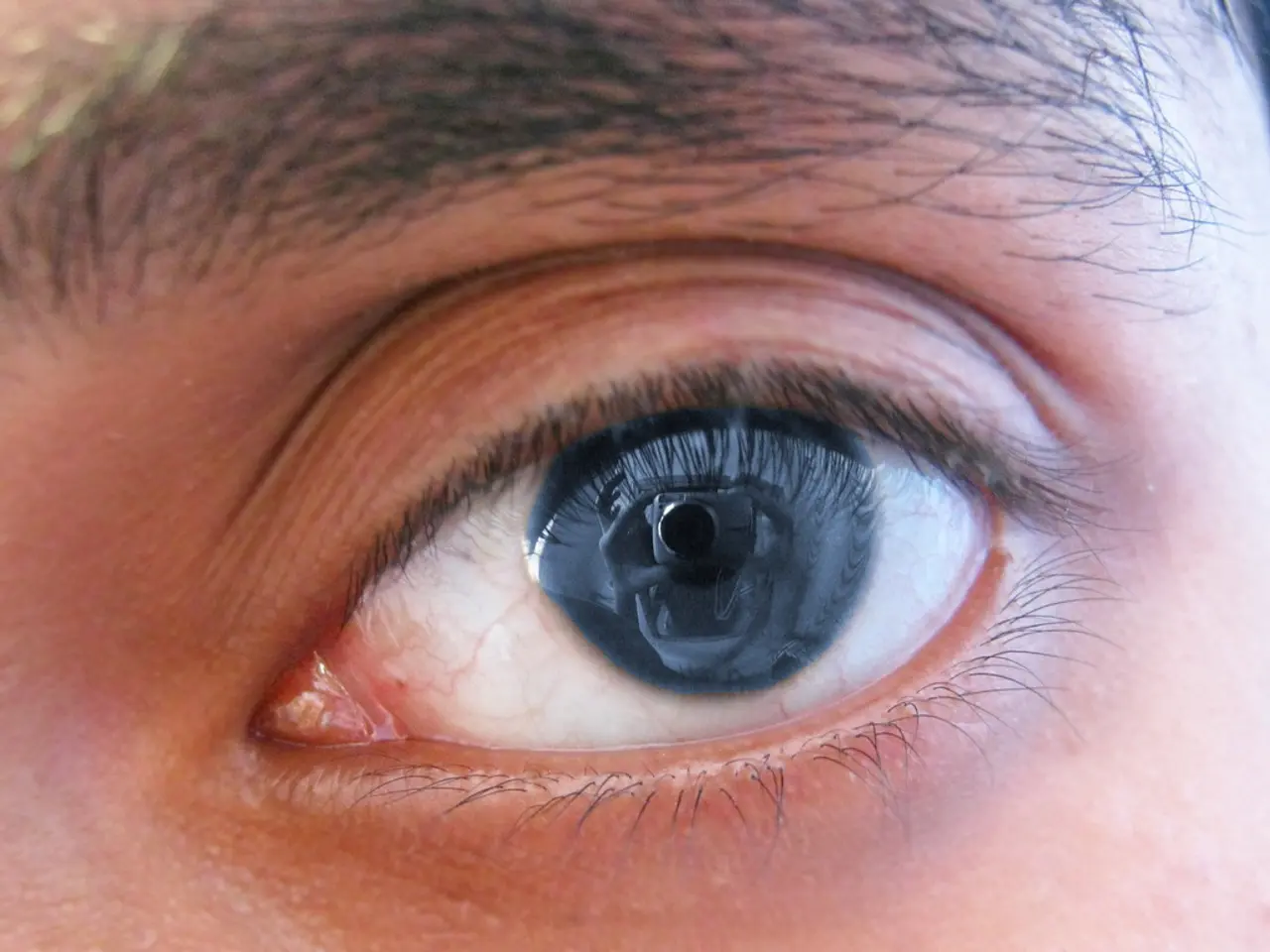Enlarged Eye Orb: Causes, Signs, and Remedies
In the realm of health concerns, swollen or puffy eyeballs can be a cause for alarm. This article aims to provide a clear and straightforward guide to the common causes, symptoms, and treatments associated with this condition.
Swollen eyeballs can be the result of various factors, with allergies being a common culprit. Respiratory, contact, or food/medication allergies can cause eye swelling, tearing, itching, redness, and associated symptoms such as a runny or stuffy nose and sneezing. Other causes may include infections such as styes, eye rashes, dermatitis, lack of sleep, kidney problems, excessive salt intake, or crying.
The symptoms accompanying a swollen eyeball are diverse. Redness of the eye or eyelids, itching, burning, or irritation, watery or teary eyes, blurred vision, sensitivity to light, and pain or discomfort are all common. In some cases, bumps or pimples may form on the eyelids, particularly with styes. Difficulty opening the eye may also occur if swelling is severe.
Treatment for a swollen eyeball depends on the underlying cause. For allergies, identifying and avoiding allergens, along with medications such as oral antihistamines or anti-allergy eye drops, and cold compresses, can provide relief. For styes and infections, warm compresses, good hygiene, and, if necessary, antibiotic ointments or oral antibiotics may be required. For rashes, treating the underlying cause and topical medications may be necessary.
In all cases, it is essential to seek medical attention if the swollen eyeball is accompanied by pain, severe redness, or vision changes, if swelling does not improve after home care, if there is difficulty opening the eye, if there are signs of infection spreading, or if the cause is unknown or the swelling recurs frequently despite home treatments. Prompt evaluation by an eye doctor is advisable to diagnose and effectively manage the underlying cause, especially to prevent complications.
It is crucial to remember that while a swollen eyeball can be alarming, it is not always a sign of a severe condition. However, prompt attention is necessary to ensure proper diagnosis and treatment.
References:
- Mayo Clinic. (2021). Swollen eyelid. [online] Available at: https://www.mayoclinic.org/diseases-conditions/swollen-eyelid/symptoms-causes/syc-20352489
- American Academy of Ophthalmology. (2021). Eye rashes and dermatitis. [online] Available at: https://www.aao.org/eye-health/diseases/eye-rashes-and-dermatitis
- MedlinePlus. (2021). Allergic conjunctivitis. [online] Available at: https://medlineplus.gov/ency/article/000740.htm
- MedlinePlus. (2021). Stye. [online] Available at: https://medlineplus.gov/ency/article/000742.htm
- Cleveland Clinic. (2021). Swollen eyelid. [online] Available at: https://my.clevelandclinic.org/health/symptoms/16766-swollen-eyelid
This article is for informational purposes only and should not be used as a substitute for professional medical advice. Always consult a healthcare provider for questions regarding specific health concerns.
- Swollen eyeballs can often be traced back to allergies, such as those caused by respiratory, contact, or food/medication allergens, which also bring symptoms like a runny nose and sneezing.
- Eye swelling, redness, and associated symptoms like itching, burning, or irritation could signal a range of medical-conditions, including infections like conjunctivitis or styes, eczema, or even kidney problems.
- A swollen eyeball can also be an indication of mental-health conditions, such as depression or anxiety, which can manifest physically as eye swelling or other symptoms.
- In addition to allergies, science has shown a correlation between certain health-and-wellness issues, like diabetes or bipolar disorder, and eye problems like swollen or puffy eye regions.
- Meanwhile, research in the field of medical-conditions has revealed that conditions like Alzheimer's and breast cancer can lead to conjunctivitis or other eye-health complications.
- Based on the symptoms presented, predictive models can sometimes help determine the underlying cause of a swollen eyeball, guiding individuals towards appropriate self-care or medical intervention.
- It's important to remember that while a swollen eyeball might seem unrelated, it can provide valuable insights into one's overall health-and-wellness status.
- When faced with a swollen eyeball, always consider seeking the guidance of a medical professional, as this could help prevent secondary infections or complications associated with eye-health issues.
- By staying vigilant about potential eye-health concerns and consulting with healthcare providers when necessary, one can better monitor their health, ultimately fostering improved overall health and mental-wellbeing.




